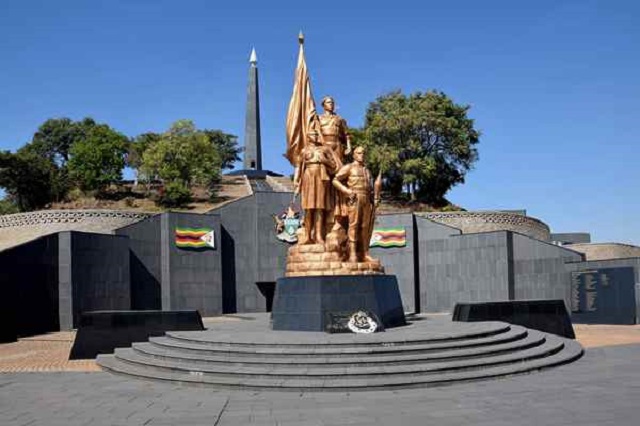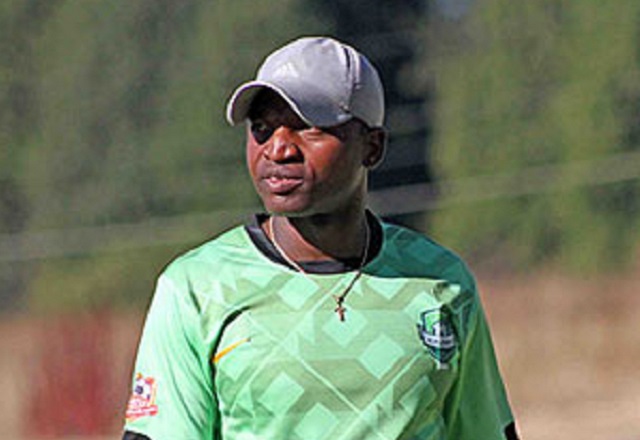All roads lead to Heroes’ Acre: As Zimbabwe buries two gallant freedom fighters

Tendai Mugabe and Nyemudzai Kakore, Harare Bureau
THOUSANDS of people are expected to throng the National Heroes’ Acre today for the joint burial of two gallant freedom fighters, Cdes Maud Muzenda and George Rutanhire, who died two days apart.
Cde Muzenda (88), who was wife to the late Vice President Simon Vengesai Muzenda, died on Tuesday at Avenues Clinic, while Cde Rutanhire, a Zanu-PF Politburo member and director of the Chitepo Ideological College, passed on last Saturday at Karanda Hospital.
The two freedom fighters contributed immensely to the liberation struggle and Cde Muzenda lost one of her children at the height of the war while in Mozambique.
Cde Muzenda was a source of inspiration to many and in countless ways she complemented her late husband, who was affectionately known as the Soul of the Nation.
On the other hand, Cde Rutanhire is a decorated war freedom fighter who trained several combatants in Tanzania.
As a tried and tested guerilla, Cde Rutanhire died with a bullet on his leg after he was shot in the war front in 1973.
He was supposed to undergo a surgery in China to remove the bullet, but he refused.
The bodies of the two arrived in Harare yesterday ahead of today’s burial at the national shrine.
Cde Muzenda’s body was in Gutu where people of Masvingo bade her farewell, while that of Cde Rutanhire was in Centenary where his kith and kin also bade him farewell.
Both bodies arrived aboard an Air Force of Zimbabwe helicopter and were taken to the Defence Forces Funeral Parlour at One Commando Regiment.
Cde Muzenda’s body was accompanied by her children and close relatives before proceeding to her Chisipite home, where it lay in state.
A church service led by senior Chaplin Pastor Sam Gunda was held when her body arrived in Chisipite. She is survived by six children, 20 grandchildren and 15 great-grandchildren.
On arrival at One Commando, Cde Rutanhire’s body was accompanied by Mashonaland Central Minister of State Advocate Martin Dinha, Zanu-PF Mashonaland Central acting chairperson Cde Dickson Mafios and close relatives. His body was received by fellow war veteran and Manicaland Minister of State Cde Mandi Chimene and senior Government officials.
Speaking to journalists at One Commando, Cde Chimene said: “He (Cde Rutanhire) was leading us in burying our comrades across the country. Some were already giving us names because of the work we were doing of reburying our comrades.
“Cde Rutanhire went to the war well ahead of us, but he remained humble and for us to be what we are today it is because of people like Cde Rutanhire and others of his ilk who sacrificed his life to liberate the country.”
His body was later taken to his Belvedere home where it lay in state ahead of today’s burial.
Amai Muzenda was born in 1928 in Matsikidze village in Masvingo District and attained Standard Six at Gokomere Mission before training as a nurse at Makumbe Mission Hospital in Chinhamora.
The late VP Muzenda’s wife then worked at one of the municipal hospitals in Bulawayo in the 1950s.
She then married the late VP Muzenda, who had already been inducted into trade union activism against the Rhodesian settler government by the likes of Cde Benjamin Burombo.
Amai Muzenda stood by her husband in the cause to liberate Zimbabwe that started with the founding of the African National Voice Association formed in Bulawayo in 1947, in which the late VP Muzenda was elected Secretary General.
She performed the role of a caring mother for her eight children when the late VP Muzenda and his family moved to Mvuma in the Midlands province from where he was always away from home mobilising and conscientising masses across Masvingo province on the need to fight the colonial government.
During that time, the late VP Muzenda would leave Amai Muzenda with their children at home while he travelled the length and breadth of Masvingo and Midlands provinces, mobilising the masses together with the likes of late veteran nationalists Cde Leopold Takawara and Cde James Bassopo Moyo.
Amai Muzenda also confronted the Rhodesian colonial government head-on as she battled with the administration that underpaid black professionals like herself, a nurse, who wanted to be treated equally with their white counterparts. She was eventually arrested and detained for supporting her husband in the struggle to free Zimbabwe from the yoke of colonialism.
The late VP Muzenda’s widow had to endure threats of imprisonment and loss of employment by the Rhodesian government, but she remained resolute in her support for her nationalist husband.
Amai Muzenda fended for her children and family at a time when her husband was arrested by Rhodesian authorities and detained at Harare Central Prison for demanding majority rule in Zimbabwe. Even after her husband’s detention, Amai Muzenda continued to work with the likes of Amai Takawira (wife to Cde Leopold Takawira) and others by forming an underground movement to continue supporting the armed struggle.
At Mvuma Hospital, where she was working, Amai Muzenda treated injured freedom fighters and also supplied them with money and medicines. She did all this defying strict surveillance by the dreaded Rhodesian intelligence services, including the notorious Selous Scouts.
Amai Muzenda was to endure further agony after she lost her then 18-year-old daughter Theresa, who was killed at Chimoio camp in Mozambique during the liberation struggle.
After independence, Amai Muzenda continued to support her husband by promoting unity, peace and development in the post-independent Zimbabwe.
She also played a leading role in the Child Survival and Development Foundation activities and continued to engage Zanu-PF structures to promote unity, peace and good leadership even after the death of her husband.
Amai Muzenda also loathed all forms of corruption and always exhorted ruling party cadres to take a leaf by living an honest life like her late husband Dr Muzenda, who was affectionately known as the “Soul of The Nation.”
Cde Rutanhire was born Peter Clever Musanhu on April 15, 1949 at St Albert’s Hospital.
He started active politics at St Albert’s Mission in 1965 and in 1966, he led a student strike, boycotting lessons in protest against the attack of the seven revolutionary cadres in Chinhoyi.
In 1972, he joined the liberation struggle and received military training at Mgagao Training Camp in Tanzania.
Cde Rutanhire was recalled from the war front in 1973 after he was shot in the leg.
He once represented Zanu in Sweden, where he met Dr Sydney Sekeramayi, Cdes Mayor Urimbo, Sally Mugabe and Zanu representative to Sweden, Cde Claudious Chokwenda.
In 1975, Cde Rutanhire was called back to Mgagao by General Josiah Magama Tongogara to join others and re-organise the war after the death of Cde Herbert Chitepo.
In June the same year up to September, Cde Rutanhire participated in the drafting of the Mgagao Declaration together with Cde Rex Nhongo (Solomon Mujuru), Constantino Chiwenga, Perrance Shiri, Mernad Muzariri and Paradzai Zimondi.
At independence in 1980, Cde Rutanhire was elected Member of Parliament for Mashonaland Central Province and in 1981, he was appointed Deputy Minister for Youths, Sport and Recreation.
He was elected Central Committee member in 1981 and in 1985, he was the Government chief whip.
Cde Rutanhire participated in the talks that led to the signing of the Unity Accord in 1987 between Zanu-PF and PF Zapu.
In 2010, Cde Rutanhire was appointed Politburo member, a position he held until his death.
Cde Rutanhire is survived by three wives and eight children.
Today’s burial programme starts in the morning where the two bodies will be taken to Stodart Hall in Mbare for body viewing.
President Mugabe, in his capacity as the Head of State and Government will lead the proceedings.
After body viewing, the funeral cortèges will head for burial at the National Heroes’ Acre.










Comments